Conference now turning efforts, dedicating resources to Hurricane Florence recovery
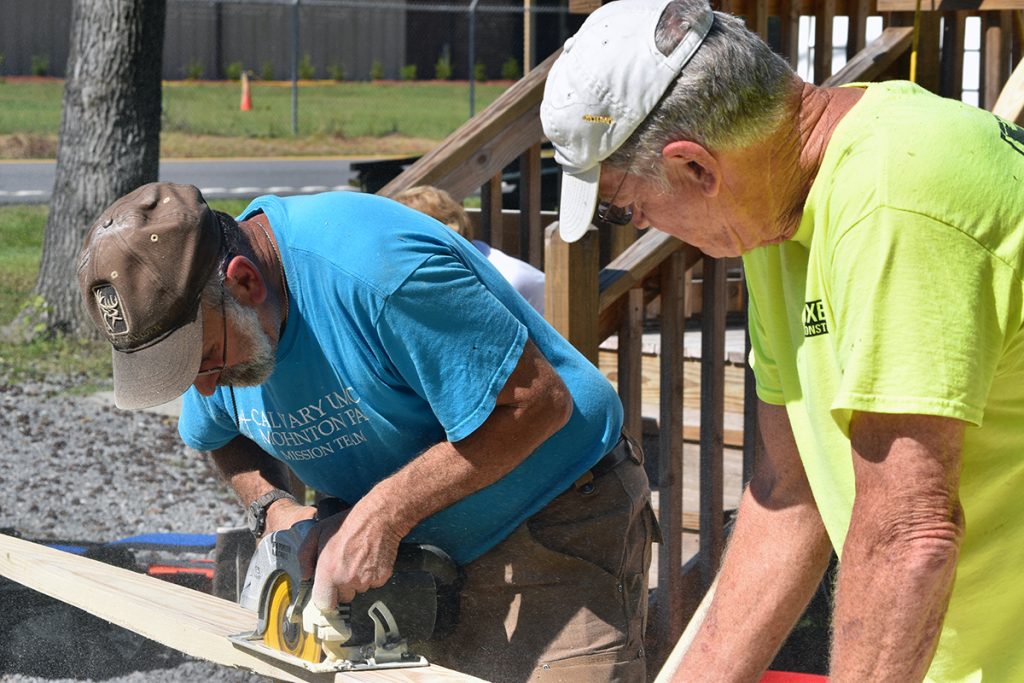
UMCSC Disaster Recovery has completed its efforts to assist those affected by the historic floods of 2015 and Hurricane Matthew in 2016 – bringing to a close a more than three-year effort driven by dedicated volunteers and generous donors from around South Carolina and across the nation.
Remnants of Hurricane Joaquin dropped as much as 20 inches of rain across most of the state in October 2015, leading to widespread flooding and thousands of damaged homes.
Eleven months later, Hurricane Matthew dropped 12-18 inches of rain across much of South Carolina, re-flooding many of the same vulnerable communities and damaging thousands more homes.
South Carolina had not experienced such widespread damage since 1989’s Hurricane Hugo – often referred to as something of a disaster benchmark in the state.
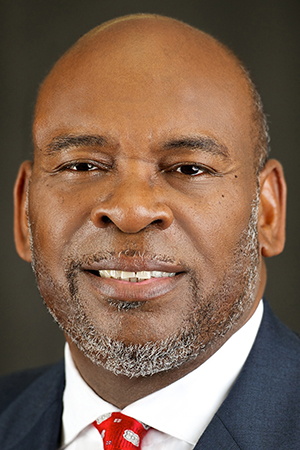
“South Carolinians had gone more than a quarter-century without a major disaster when the historic floods of 2015 hit, affecting more than half of our 42 counties,” said Bishop L. Jonathan Holston, resident bishop of the South Carolina Conference of the United Methodist Church. “Only a year later, another major disaster found our state when Hurricane Matthew came ashore in 2016, again affecting more than half of our counties – many of them for a second time.
“When the floods struck, the South Carolina Conference had no infrastructure through which to deal with one major disaster – much less two.”
What’s next: Hurricane Florence recovery up and running
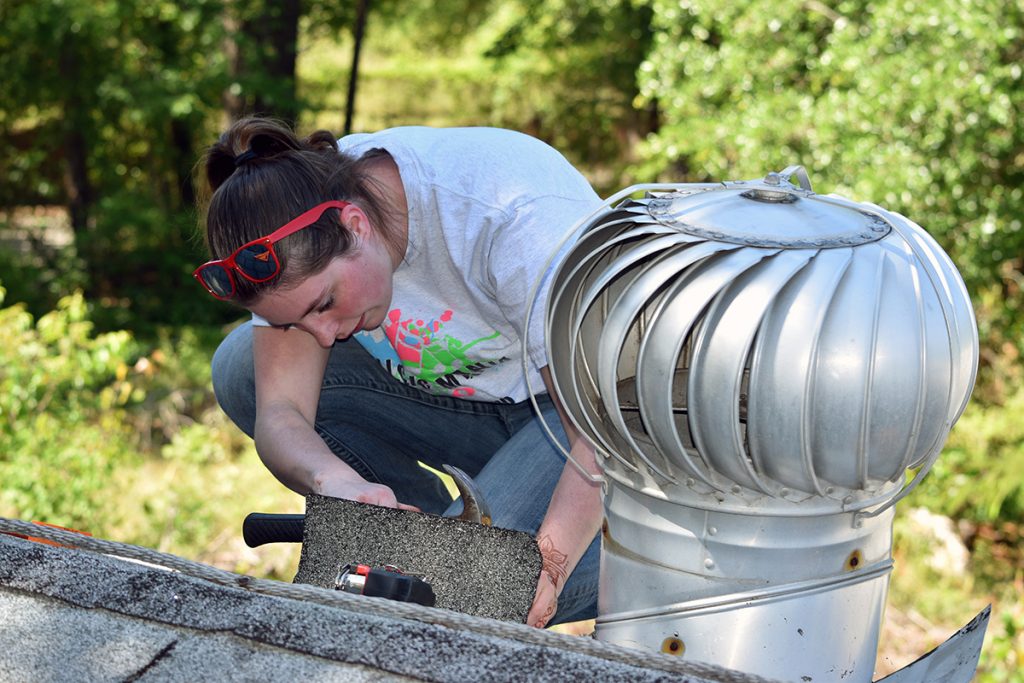
Thanks to a series of grants from the United Methodist Committee on Relief totaling nearly $2 million – as well as financial assistance from the United Way and other relief agencies – conference leaders were able to begin creating a framework through which disaster recovery efforts could be channeled.
The conference hired Ward Smith – a veteran of disaster recovery efforts across the Southeast – to head up the effort as disaster recovery director. Along with Conference Connectional Ministries staff, he helped create a system that over the past three years has:
- Deployed about 4,000 volunteers
- Closed more than 1,600 disaster assistance cases
- Served nearly 500 clients
- Completed almost 300 construction projects
- Coordinated efforts with nearly a dozen other disaster recovery organizations, both governmental and non-profit
“Thanks in large part to Ward’s leadership and experience,” Bishop Holston said, “we have learned a great deal about what to do – and sometimes what not to do – when disaster strikes our neighbors.”
Smith credits the success of the conference Disaster Recovery Ministries to the staff, volunteers and donors God led to South Carolina.
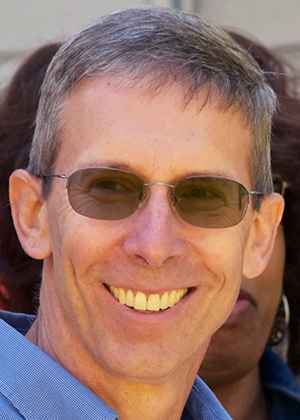
“God’s hand has guided this program and provided a steady stream of volunteer teams – many of whom came multiple times to serve South Carolina families in need,” Smith said.
“With God’s help, we assisted families in counties that no other program would help, people whose homes would not have gotten the repairs needed for them to be able to return to safe, sanitary and secure living conditions.”
In addition to helping so many families in some of the state’s most vulnerable communities, Smith said, the conference also learned much from its efforts over the past three years.
“We learned how to serve with other denominations and organizations to best help families in need,” he said. “We have learned the importance of adjusting and adapting to the circumstances and situations that arise with accurate information and discerning planning.
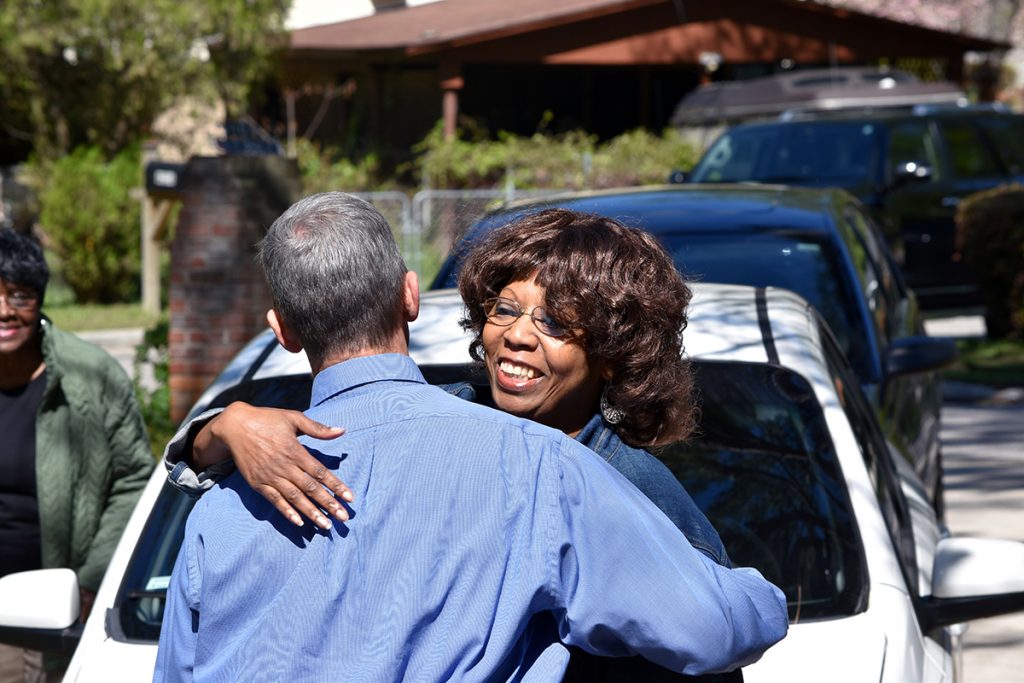
“Sometimes there is plenty of donor funding, sometimes not. Sometimes volunteers are steady, sometimes not. Sometimes there is local interest, sometimes not.”
Conference leaders noticed a difference in the response to the 2015 floods, when compared to the reaction following Hurricane Matthew.
“The 2015 floods received a lot of national attention from organizations and groups wanting to help in the 24 South Carolina counties that were affected,” Smith said. “Disaster Recovery Ministries was making great progress helping families recover, and many other organizations also were active and engaged.
“When Hurricane Matthew arrived a year later, few programs came to help, and some on-the-ground programs stopped. Disaster Recovery Ministries adjusted to the increased demands and needs as 24 counties again were affected – many of them for a second time.”
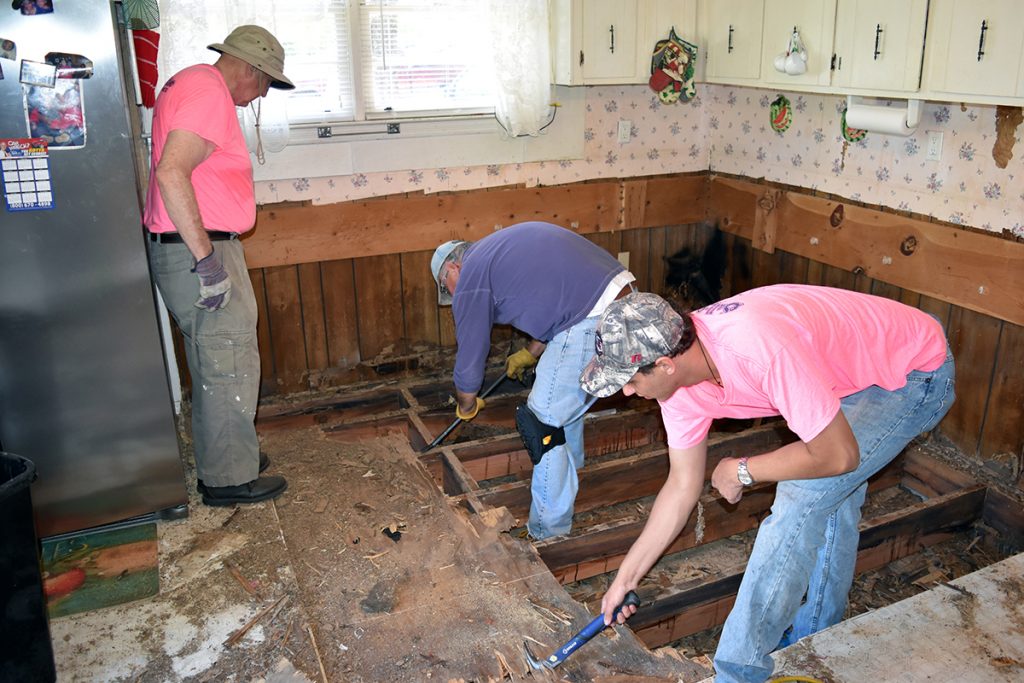
Smith, who will not oversee the South Carolina Conference’s Disaster Recovery efforts in the wake of 2018’s Hurricane Florence, appreciates what he has experienced on a personal level over three hectic years.
“Disaster Recovery is a ministry, not a job,” he said. “This ministry has given me the opportunity to use my gifts, abilities, experience and knowledge to help families recover from natural and man-made disasters nationally and internationally.
“It has been a tremendous challenge and a blessing to serve in my home state, where I started volunteering with Salkehatchie Summer Service when I was 14 years old.”
South Carolina churches hosted volunteers
Disaster Recovery Ministries was able to keep costs down and maintain good stewardship of generously donated resources thanks to the willingness of volunteers to sleep on a church floor during their stays, and the readiness of local churches to host volunteer teams while they worked on South Carolina homes.
More than 30 churches and community organizations hosted teams of Disaster Recovery volunteers over the past three years, many of them multiple times:
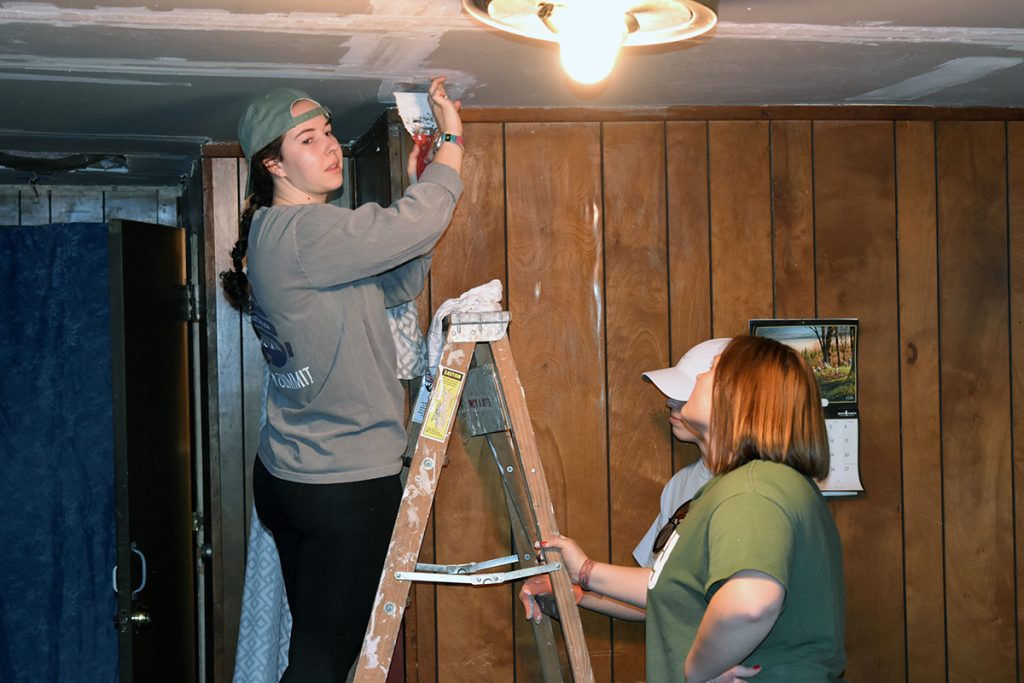
- Aldersgate UMC, North Charleston
- Bethel/Oswego UMC, Sumter
- Camp GlenAyr, Cameron
- Carteret Street UMC, Beaufort
- Duncan Memorial UMC, Georgetown
- First Baptist Church, Orangeburg
- Lake City First Baptist Church
- Lexington UMC
- Main Street UMC, Dillon
- Manning UMC
- McLeod UMC-Victory Ranch, Eastover
- Moncks Corner UMC
- Mt. Hebron UMC, West Columbia
- North Charleston UMC
- Pinopolis UMC
- Salem UMC, Conway
- Sand Hill UMC, Ridgeville
- Seacoast Church, Manning
- Shandon UMC, Columbia
- St. Andrew By-The-Sea-Bluffton Campus
- St. Mark UMC, Greenwood
- St. Mark’s UMC, Sumter
- St. Paul UMC, St. Matthews
- St. Stephens UMC
- Summerton Presbyterian Church
- Summerton UMC
- Trinity UMC, Andrews
- Trinity UMC, Blythewood
- Trinity Givhans UMC, Ridgeville
- Trinity UMC, Sumter
- Union UMC, Irmo
- Waters Edge UMC, Beaufort
South Carolina churches sent volunteers
Conference leaders also were able to maintain good stewardship of generously donated resources thanks to the thousands of volunteer hours worked on damaged homes, avoiding the need to pay contractors to do the work.
More than 20 churches dispatched teams of Disaster Recovery volunteers over the past three years, many of them multiple times:
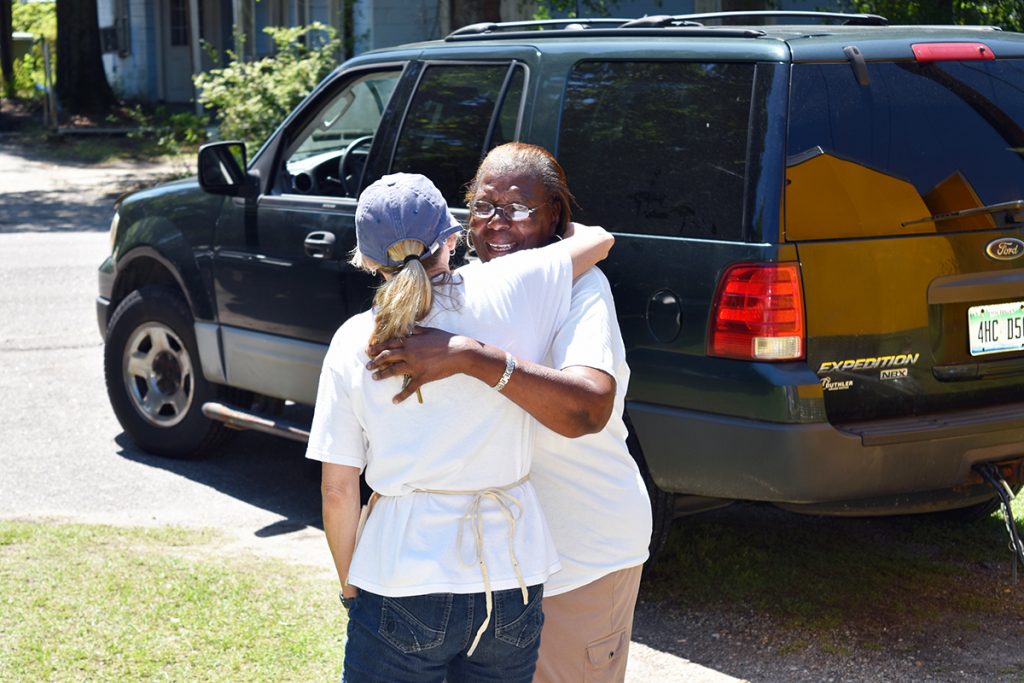
- Beulah UMC, Gilbert
- Beulah UMC, Blythewood
- Cayce UMC
- Chapin UMC
- Faith UMC, Lexington
- First Baptist Church, Greenville
- First Clover UMC
- Grace UMC, Columbia
- Lawrence Chapel UMC, Central
- Lexington UMC
- Mauldin UMC
- McCormick UMC
- Methodist Student Network at USC, Columbia
- Mt. Hebron UMC, West Columbia
- Oak Grove UMC, Blythewood
- Philadelphia UMC, Fort Mill
- Pond Branch UMC, Gilbert
- Shady Grove UMC, Irmo
- Simpsonville UMC
- Surfside UMC
- Tranquil UMC, Greenwood
- Washington Street UMC, Columbia
- Winthrop University Wesley Foundation, Rock Hill
- Zion UMC, Anderson
